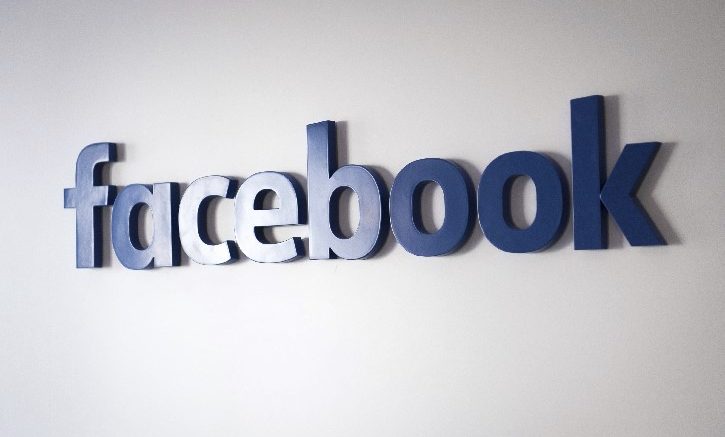Meta Platforms, Inc., doing business as Meta, formerly known as TheFacebook, Inc., and Facebook, Inc. It is an American multinational technology conglomerate company based in Menlo Park, California. It is the parent company of Instagram, Facebook, and WhatsApp.
In addition, Meta is one of the big five American information-technology firms, alongside Microsoft, Amazon, Google, and Apple. The Meta services and products include Facebook Portal, Messenger, Facebook, and Facebook Watch. It has also acquired Giphy, Oculus, Presize, Kustomer, and Mapillary.
Meta Platforms, Inc. has a 9.99% stake in Jio Platforms. In 2021, around 97.5% of the company’s revenue came from the sale of Ad placements to marketers. According to Meta, the “metaverse” refers to an integrated environment that connects all of the company’s services and products, and it was renamed Meta on 28th October 2021.
The shares of Facebook parent company Meta surged around 18% during the extended trading hours On Wednesday after the firm reported earnings that surpassed estimates, despite the disappointing revenue.
Here are the results:-
- Revenue: According to a Refinitiv survey of analysts, the revenue is $27.91 Billion vs. $28.2 billion projected.
- Earnings per share: According to Refinitiv analysis, the earnings per share is $2.72 vs. $2.56 anticipated.
- DAUs (Daily Active Users): According to StreetAccount, the daily active users are $1.96 billion, vs. $1.95 billion estimated.
- MAUs (Monthly Active Users): According to StreetAccount analysis, the monthly active users are $2.94 billion vs. $2.97 billion projected.
- ARPU (Average Revenue per User): According to StreetAccount, the average revenue per user is $9.54 vs. $9.50 estimated.
Meta provided an update to investors for the first time since a dismal fourth-quarter results announcement in February knocked the stock down around 26%. This was its worst day ever. The number of daily active users dropped for the first time in the fourth quarter, but the active users count bounced back slightly from 1.93 billion to 1.96 billion.
Wednesday’s extended trading session rally still leaves the stock significantly down for the year. However, if the stock climbs on Thursday’s trading session and closes the trading day higher than 19.1%, it will be its second-best trading day ever and its most significant gain in July 2013. As of today’s trading session close, the stock had lost almost half its value in 2022.
Furthermore, Facebook exceeded all expectations regarding average revenue per user, in addition to its earnings figures. However, almost all key metrics were disappointing, including monthly active users.
The company revenue rose by 7% during the quarter, marking the first time in Facebook’s 10-year history as a public corporation that growth was in the single digits. Analysts were anticipating 7.8% growth.
Facebook expects revenue of $28 billion to $30 billion in the second quarter. This is lower than the $30.6 billion forecasted by analysts surveyed by Refinitiv. In the release, Facebook stated that the guidance considers continued trends from quarter one and weak revenue growth due to “coincided with conflict in Ukraine.”
In October 2021, Facebook changed its name to Meta, reflecting Mark Zuckerberg’s (CEO) determination to see the company move towards a future where people can study, play, and work in a virtual world.
Facebook’s family of apps, including WhatsApp, Instagram, and the core app, accounted for 97.5% of revenue during the quarter. The Reality Labs, which is attempting to create products for the metaverse, contributed $695 million.
In the family of the applications business, net income declined around 13% from a year earlier to $11.48 billion. Reality Labs suffered a $2.96 billion loss in this period compared to a $1.83 billion loss in the first quarter of 2021.
Moreover, Facebook has reduced its total expenses guidance for 2022 to somewhere between the range of 87 billion to $92billion, which is below its previous estimate range of $90 billion to $95 billion. It anticipates that most of the expenditure growth will be driven by Facebook’s family of applications segment, followed by Reality Labs.
The other social media companies made similar arguments about macroeconomic factors affecting their advertising revenue. Snap Inc. Company’s CEO Evan Thomas Spiegel described the first quarter as “more difficult than we had anticipated.” He further stated that some advertisers had stopped advertising campaigns after Russia’s attack on Ukraine in February. YouTube, which Google owns, grew only 14% in the first quarter. This was significantly below the 25% analysts had predicted.
David M. Wehner, CFO of Meta Company, stated that Russia’s media regulator had restricted access to its services. As a result, there will be a decline in monthly active users across Europe over the next quarter, which will more clearly reflect the impact of the government’s action.
Inflation and Apple’s privacy changes to iPhone operating systems could impact Digital ads. David Wehner previously predicted that there would be a $10 billion revenue hit by 2022. However, he admitted that the figure was an estimation.
On Wednesday’s earnings call, Sheryl Kara Sandberg, Chief Operating Officer of Facebook, told analysts that “they have so far been able to close a good section of the underreporting gaps and share that with advertisers,” however that it will take a longer time to make up for the rest.
Sheryl Sandberg further stated, “We think these times are a little bit challenging. Over the long run, we do have an extremely competitive advantage when you consider all the advertising opportunities available to advertisers online and offline.”
Meta Company is also anticipating facing a more restrictive regulatory environment in the future with Europe agreeing on The Digital Markets Act. This Act aims to limit the power of digital gatekeepers.
Sheryl Sandberg stated that, although the final text of the Digital Markets Act (DMA) was not made public, it was in line with expectations. She also said that she anticipates the regulatory environment to remain a “real problem” for the entire industry.
